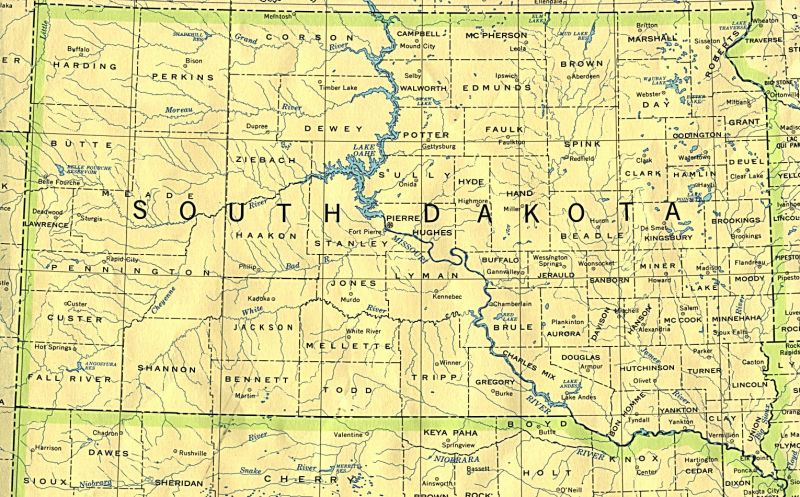 The new Justice Department policy to take a hands-off approach to cannabis cultivation on Indian reservations could be a boon for the Lakota Sioux, who have long been pressing their right as a sovereign nation to grow industrial hemp. US Attorney for North Dakota Timothy Purdon (who is also the US Attorney General's pointman for Native American issues) told AP he's not aware of any tribes in either North or South Dakota actively considering a cannabis industry. The tribal council of the Oglala Lakota Nation this year rejected a proposal to allow cannabis cultivation on the Pine Ridge Reservation in southwest South Dakota. The council's Law and Order Committee chair Ellen Fills the Pipe said: "For me, it's a drug. My gut feeling is we're most likely going to shoot it down." (The San Francisco Chronicle's cannabis-friendly Smell the Truth blog couldn't help noting the irony of her name, but also acknowledged fears, realistic or not, that rez pot sales could excacerbate already existing alcohol abuse problems.) But that's the smokable variety, not the industrial. Chairman Dave Archambault of the Standing Rock Sioux, with a reservation straddling North and South Dakota, said that his tribe might consider industrial hemp cultivation.
The new Justice Department policy to take a hands-off approach to cannabis cultivation on Indian reservations could be a boon for the Lakota Sioux, who have long been pressing their right as a sovereign nation to grow industrial hemp. US Attorney for North Dakota Timothy Purdon (who is also the US Attorney General's pointman for Native American issues) told AP he's not aware of any tribes in either North or South Dakota actively considering a cannabis industry. The tribal council of the Oglala Lakota Nation this year rejected a proposal to allow cannabis cultivation on the Pine Ridge Reservation in southwest South Dakota. The council's Law and Order Committee chair Ellen Fills the Pipe said: "For me, it's a drug. My gut feeling is we're most likely going to shoot it down." (The San Francisco Chronicle's cannabis-friendly Smell the Truth blog couldn't help noting the irony of her name, but also acknowledged fears, realistic or not, that rez pot sales could excacerbate already existing alcohol abuse problems.) But that's the smokable variety, not the industrial. Chairman Dave Archambault of the Standing Rock Sioux, with a reservation straddling North and South Dakota, said that his tribe might consider industrial hemp cultivation.

 In an historic move to respect Native American sovereignty earlier this month, the US Department of Justice (
In an historic move to respect Native American sovereignty earlier this month, the US Department of Justice ( The House and Senate appropriations leadership has hammered out a budget bill that includes an historic amendment to curb federal Department of Justice (DoJ) enforcement in medical marijuana states. The measure, which was originally passed by the House in May with a 219-189 vote, aims to prohibit the DoJ from spending taxpayer money to undermine state medical marijuana laws. "This is great news for medical marijuana patients all across the country," said Rep.
The House and Senate appropriations leadership has hammered out a budget bill that includes an historic amendment to curb federal Department of Justice (DoJ) enforcement in medical marijuana states. The measure, which was originally passed by the House in May with a 219-189 vote, aims to prohibit the DoJ from spending taxpayer money to undermine state medical marijuana laws. "This is great news for medical marijuana patients all across the country," said Rep.  US representatives
US representatives  Reaction continues to mount to news that
Reaction continues to mount to news that  Following the
Following the  The
The  New York City Police Commissioner
New York City Police Commissioner 





Recent comments
1 week 6 days ago
2 weeks 5 days ago
6 weeks 5 days ago
10 weeks 4 days ago
14 weeks 4 days ago
15 weeks 2 days ago
25 weeks 2 days ago
29 weeks 3 days ago
30 weeks 3 days ago
30 weeks 3 days ago